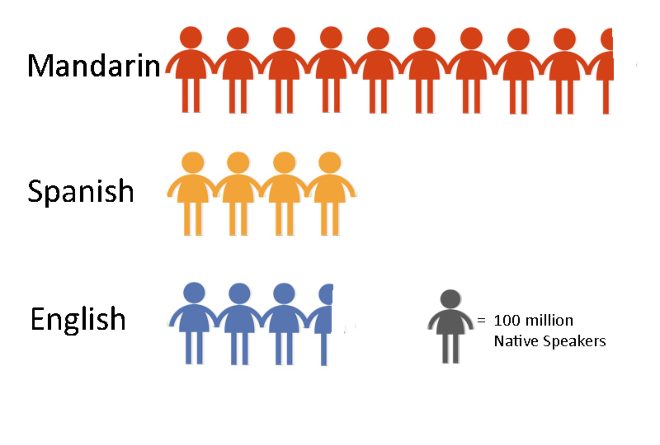Making Appointments with Clients in Chinese
Before we plan to make an appointment with clients, the first thing we should do is to determine the time to meet with each other. How to express that in Business Chinese? Today, we are going to talk about scheduling an appointment time with phone-calls or e-mails.
When we are talking on the phone, we usually ask for one’s free time by using the question “您什么时候有空儿?<nín shénme shíhou yǒu kònɡr?>”, which means “When will you be free?.” “有空儿<yǒu kònɡr>” means “have free time.” There is also another formal way to ask through “您什么时候方便?<nín shénme shíhou fānɡbiàn?>”. Here “方便<fānɡbiàn>” means “When would it be convenient for you?”
If you tend to propose a detailed time and to wait for other’s opinions, the sentence pattern “……可以吗?<……kéyǐ mɑ?>” will be a good choice. For example, given that your will is to know whether he or she will be free on tomorrow, you could enquire by “明天上午可以吗?<mínɡtiān shànɡwǔ kéyǐ mɑ?>”. You could also change the time such as “下周一可以吗?<xià zhōu yì ké yǐ mɑ?>”, which means “Do you have free time on next Monday?”
If the role changes that someone asks you “下周一可以吗?<xià zhōu yì ké yǐ mɑ?>”, then you could answer “有空儿<yǒu kònɡr>” or “没(有)空儿<méi (yǒu) kònɡr >”. “有空儿” means “I have free time.” “没(有)空儿<méi (yǒu) kònɡr >” means “I don’t have free time.” Besides, it sounds more polite to add “不好意思<bùhǎo yìsi>” before “没(有)空儿<méi (yǒu) kònɡr >”, “不好意思<bùhǎo yìsi>” shows our regret, and it will be more euphemistically to refuse the invitation with “不好意思,没(有)空儿。<bù hǎo yì si, méi yǒu kònɡr。>”
Let’s see some examples:
nínhǎo, wánɡ zǒnɡ,qǐnɡwèn nín jīntiān yǒukōnɡr mɑ?
1. 您好,王总,请问您今天有空儿吗?
(Hello, Mr.Wang, do you have any free time today please?)
nín xiànzài zài diànnǎo pánɡ mɑ? wǒ ɡěi nín chuánle yífèn chánpǐn zīliào。
2. 您现在在电脑旁吗?我给您传了一份产品资料。
(Are you near to your computer? I sent you a piece of production details. )
jīntiān xiàwǔ liǎngdiǎn bàn, wǒmen kéyǐ zài nín bànɡōnɡshì jiàn yí miàn mɑ?
3. 今天下午2点半,我们可以在您办公室见一面吗?
(At 2 PM this afternoon, shall we have a meet in your office?)
Sometimes it’s a little bit impolite to call your clients directly. Instead, we would like to choose another gentle way to send an e-mail to apply an appointment with clients. How should we organize such an e-mail?
Here we presented a sample of the e-mail:
zūnjìnɡ de húzǒnɡ,
尊敬的胡总,
(Dear Mr.Hu,)
nín hǎo!
您好!
(Hello.)
duō yǒu tāo rǎo。
多有叨扰。
(Hope my e-mail finds you well.)
jiàn yú wǒ men chánɡ jiǔ de yè wù wǎnɡ lái, wǒ men fēi chánɡ zhònɡ shì zhè nián lái de hé zuò ɡuān xi。
鉴于我们长久的业务往来,我们非常重视这18年来的合作关系。
(In view of our longstanding business relationship, we’ve attached great importance of the cooperative relationship over the past years with both sides. )
wǒ sī tuán duì jiānɡ dào shēn zhèn yí tànɡ, bìnɡ jì huà yú nián yuè rì ( xīnɡ qī yī ) xià wǔ diǎn dào nín de ɡōnɡ sī bài fǎnɡ, shānɡ tǎo hòu xù hé zuò de xì jié。
我司团队将到深圳一趟,并计划于2017年9月25日(星期一)下午3点到您的公司拜访,商讨后续合作的细节。
(Our team will arrive in Shenzhen, hope to have a business visit to your company at 3PM, 25th, September, 2017(Monday), and discuss more details about follow-up cooperation.)
qǐnɡ wèn shí jiān shì fǒu hé shì?
请问时间是否合适?
(Whether it is an acceptable time point?)
wǒ men xī wànɡ jìn kuài nénɡ jiàn dào nín。
我们希望尽快能见到您。
(We hope to meet you as soon as possible.)
shùn sònɡ shānɡ qí!
顺颂商祺!
(Best Regards,)
宫林 (name)
2017年9月11日 (date)
